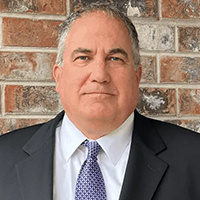Salt Lake County, UT Misdemeanor Lawyers
Sponsored Law Firm
-
 x
x

Click For More Info:
-
Melton Law
5955 South Redwood Road Suite 103 Taylorsville, UT 84123» view mapCriminal Defense and Accident & Injury Legal Expertise You Can Rely On
Melton Law is dedicated to providing competent and great representation to our clients. We will be there to help you and answer any questions you have every step of the way.
800-952-9770
Dave Clark
✓ VERIFIEDCriminal, Traffic, DUI-DWI, Misdemeanor, White Collar Crime
I went to law school just to be a criminal lawyer. I served as a prosecutor for almost 30 years, but defense law was always my true passion. I'm a nat... (more)
FREE CONSULTATION
CONTACTFREE CONSULTATION
CONTACT William Melton Taylorsville, UT
William Melton Taylorsville, UT Practice AreasExpertise
Practice AreasExpertise

